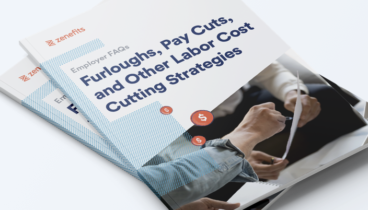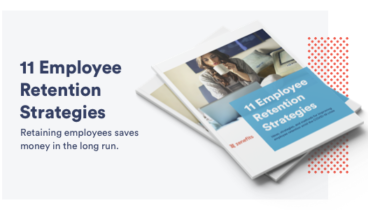As states begin to allow nonessential businesses to reopen, small businesses are faced with a new problem — employees who are reluctant to return to work.

Here's what you need to know:
-
As the employer, it’s up to you to have answers to all of the questions
-
Evaluate the workplace and reconfigure it for social distancing before re-opening
-
Stock up on PPE to provide employees with upon return
-
Communicate to your team
-
Understand why individual employees are nervous about coming back to work, and work to address those concerns
“Trust is gained by repeated authentic behavior over time,” said organizational specialist Laurie Richards.
And its trust that employers need from employees now more than ever. With some states giving the all clear to begin re-opening nonessential businesses, employers are wondering how to coax reluctant employees back into the workplace. For Richards, it all comes down to trust.
“The most important thing a business owner or manager can do to ease fears of those reluctant to return to work is to gain trust,” Richards says. “And that means transparency, demonstrating that the leader has the employees’ best interests in mind, and being available and responsive.”
It’s natural to feel concerned about returning to work. Here’s what you can do as an employer to help quell your workforce’s concerns and keep them safe at work.
How do I address common questions about returning to work?
Make a plan. As the employer, it’s up to you to have answers to all of the questions. Showing employees that you’ve prepared a thorough plan illustrates your attentiveness to their health and safety.
- Evaluate the workplace and reconfigure it for social distancing before re-opening. This goes for traditional office environments, but also showrooms, body shops, and retail stores.
- Stock up on PPE to provide employees with upon return. If you’re not able to secure sufficient stocks, be prepared to answer employee questions about why you will not be providing masks, gloves, and, if applicable, plastic face masks and barriers.
- Communicate with your team. Host a video call where you share the measures you’ll be taking and what employees can expect upon their return to work. Include time for a Q&A so employees can voice their concerns and get answers. Record the call and share in a company-wide email for later access.
What if employees are still uncomfortable returning to work?
First things first, find out why. It’s best to address these situations on a case-by-case basis. You’ll need to understand why individual employees are nervous about coming back to work.
You’ll need to understand why individual employees are nervous about coming back to work.
Dan Kalish, managing partner of employment attorney law firm HKM says their firm is seeing 3 main instances in which employees are fearful of returning to work.
1. They’re nervous about returning to work because they don’t want to catch the coronavirus.
It’s natural to be fearful about going back to work right now. But despite these understandable concerns, reluctant employees who are called back to work have little protection if they choose not to return.
“What we’ve seen is if an employee is just simply nervous, they could get fired and have a good chance of losing their unemployment benefits,” Kalish says.
However, if they’re protected under the Family First Coronavirus Response Act — like parents of children whose schools are closed — terminating them could be illegal.
2. They’re nervous to return to work because they’re immunocompromised.
Immunocompromised individuals are at greater risk of contracting the virus and suffering serious complications from it. Take their concerns seriously, and extend work from home arrangements for these individuals if possible.
“There’s a good argument to be made that working from home during a pandemic is a reasonable accommodation for an individual with an immunodeficiency.”
Additionally, as the employer, it’s important to understand the legal implications associated with immunodeficiency. For many, a weakened immune system stems from a disability. Be it an autoimmune disease, like lupus, or respiratory impairment, like asthma, a large portion of immunocompromised individuals are protected under the ADA — in which case, employers are required to provide reasonable accommodations.
And as Kalish notes, “There’s a good argument to be made that working from home during a pandemic is a reasonable accommodation for an individual with an immunodeficiency.”
3. They’re nervous to return to work because they live with an immunocompromised individual
This situation is more complicated. There are no state or federal laws that protect these workers, according to Kalish.
“One could argue that disability law protects someone they live with, but it’s a hard argument to make,” he says.
In such situations, his law firm recommends employees talk to their employers.
Ideally, employers will offer employees a work from home arrangement for those who are uncomfortable coming back to the workplace.
Can I lawfully terminate employees who refuse to return to work?
It depends. Employers must investigate the reasons for their employees’ reluctance to come back to work before making any decisions about termination. Or they can face potential legal recourse.
If employees are on protected leave and an employer is terminating them because they won’t return to work, that’s retaliation and illegal. If they’re on protected leave but the employer is laying everyone off because they can’t sustain the business, that’s simply an unfortunate reality for many today.
Perhaps more constructively, SBOs should find ways to work with employees during this difficult time.
Perhaps more constructively, SBOs should find ways to work with employees during this difficult time. Work from home arrangements are not possible for all industries or businesses. But a commitment to flexibility rather than punitive action will provide the best outcome for everyone in these challenging times — especially if you’ve received a Paycheck Protection Program (PPP) loan.
How do lawful terminations affect my PPP forgiveness eligibility?
In order for your PPP loan to be eligible for forgiveness, employers must return payroll headcount to that of mid-February levels. Naturally, employee terminations would affect these numbers, especially if your business is unable to hire new employees.
For employers who laid off employees, then attempted to re-hire them — but the employee declined the offer — the situation is a little different.
Keven Steinberg, Principal and Owner of Steinberg Law, says according to the Small Business Administration guidelines, “this situation would be deemed an exemption from the CARES Act’s general limits on loan forgiveness.”
The amount of the loan forgiveness wouldn’t be reduced as long as the offer for rehire is “for the same salary/wages and same number of hours,” Steinberg says.
“The borrower must have made a good faith, written offer to rehire, and the employee’s rejection of that offer must be documented by the borrower.”






